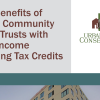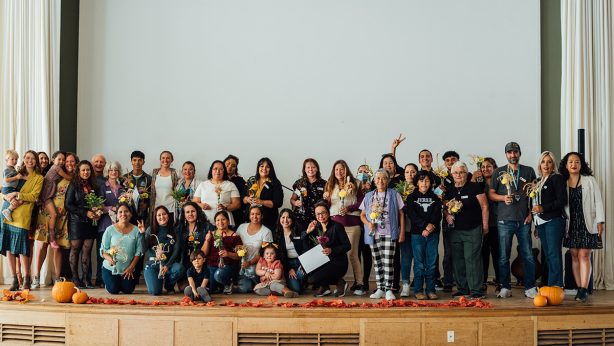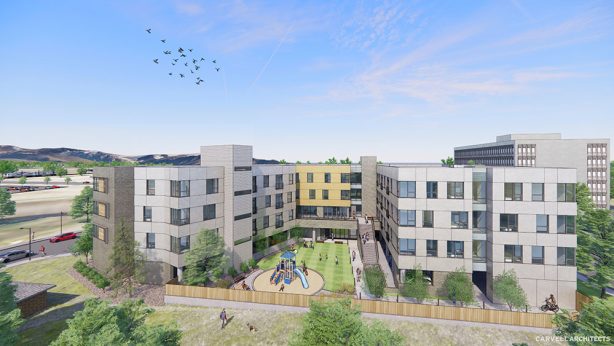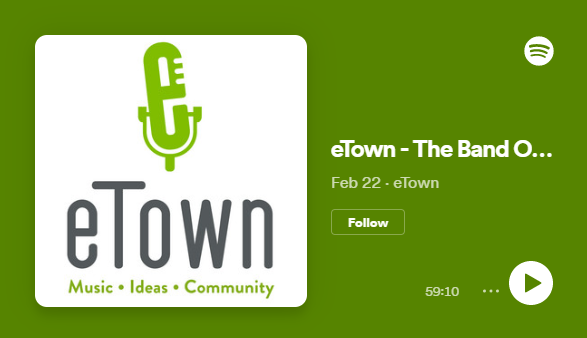
Partner Spotlight of the Month: Colorado Village Collaborative
Urban Land Conservancy celebrates the achievements of our partnerships that create and preserve nonprofit facilities and affordable housing for communities.
ULC’s Monthly Partner Spotlight shines a light on partners who demonstrate the value of collaboration, furthering our mission to improve the lives of Metro Denver residents and beyond through our real estate investments and community assets.
Congratulations to our January 2021 Partner Spotlight of the Month: Colorado Village Collaborative!
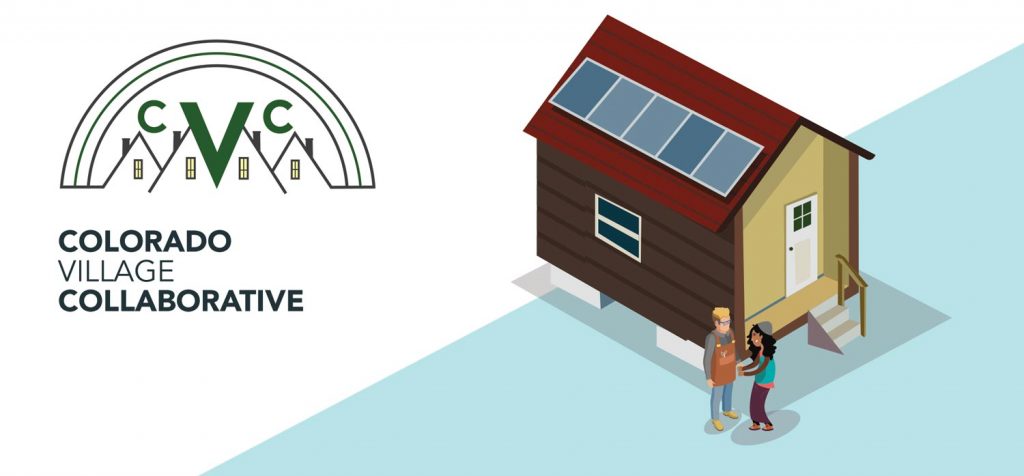
Like many cities across America, Colorado is experiencing a gentrification and housing crisis as people are driven out of their homes and neighborhoods due to rapidly increasing costs of living. According to a 2017 study, over 5,000 people experience homelessness on a given night in Denver, and housing advocates predict the real number is twice or even three times that amount. With the COVID crisis continuing to wreak havoc on our economy, this number is sure to expand.
In the late 1970s, the US made cuts to the federal housing budget that were never replaced. At the same time, we saw an increase in laws that criminalized the poor. In 2012, Denver passed what Colorado Village Collaborative (CVC) calls “The Survival Ban.” It states that it is illegal to eat, sleep, store one’s possessions, or cover oneself with a blanket in a public space.
Although Denver has many homeless shelters, there is not enough room to accommodate everyone that needs a place to rest their heads, nor do shelters address the barriers that many unhoused people face such as couples, those caring for children, the LGBTQ+ community, people with regular employment, people with animals, and people with disabilities.
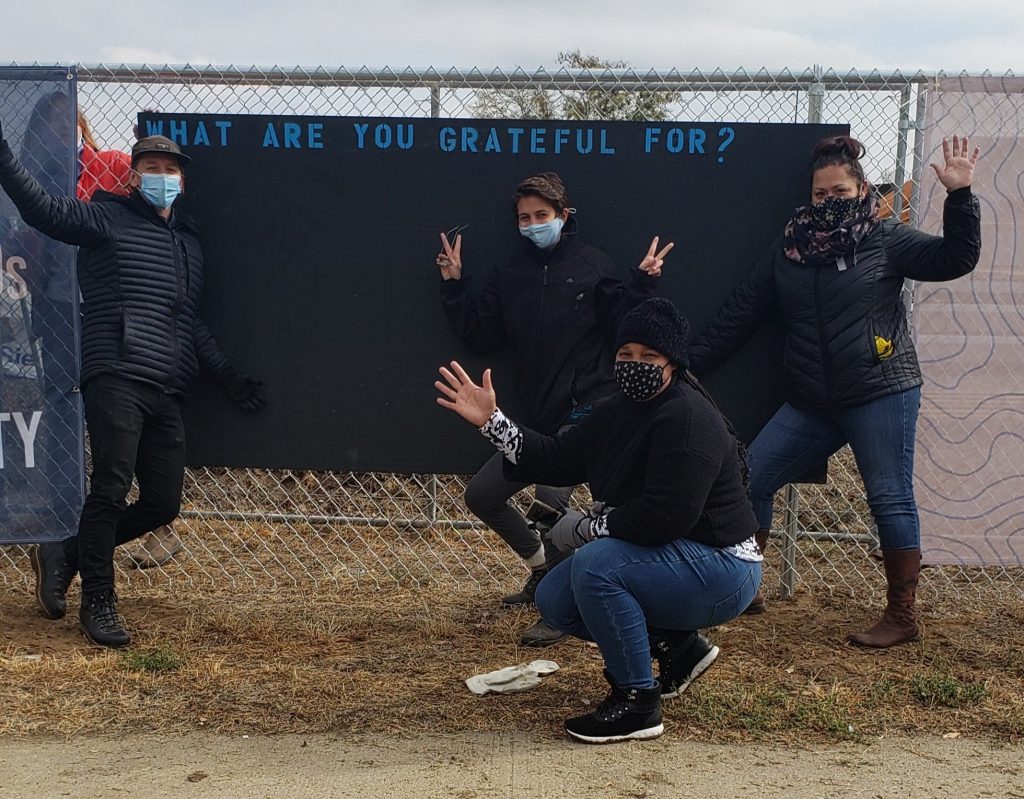
CVC offers real change by bridging the gap for those living on the streets who seek stable housing. CVC creates and operates transformation housing communities in partnership with people coming from homelessness. With an anti-oppressive lens, CVC reaches across sectors to address the current housing crisis and with their partners, designs and produces housing that is affordable, quick and easy to build, community-centric, and environmentally friendly.
“Simply put, CVC isn’t afraid to ask Denver the question ‘what kind of city do we want to be?’” said Cole Chandler, CVC’s Executive Director. “And we actively employ the community to embody radical solutions to homelessness by providing housing that centers on human dignity, empowerment of marginalized voices, and design solutions that are affordable, sustainable, and community-oriented.”
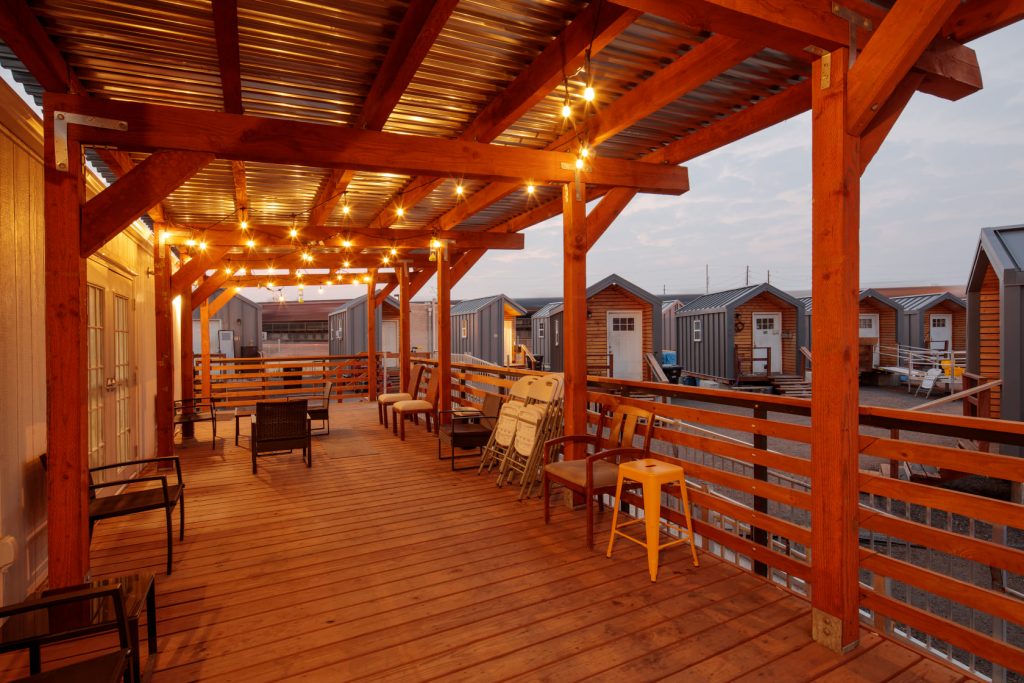
A Tiny Home is a low-impact alternative to a homeless shelter. Contrary to common myths:
- There are no lines or loitering as individuals live in their tiny homes and go to and from work or school.
- Tiny Homes are not “permanent housing;” they are intended as interim solutions to aid people while finding permanent stability.
- Tiny Home Villages have stringent rules for occupants as such, there are no illegal drugs allowed.
- CVC conducts a screening process to ensure members of the Village agree to the rules.
- Finally, Tiny Home Villages also do not bring down the market value of homes in the surrounding communities.
In addition, CVC has Village Organizers on-site five days a week and are on-call nights and weekends. They have weekly removal of trash, weeds, and snow, and enforce quiet hours from 10 pm to 8 am. Each resident is chosen through an interview process and is required to sign a non-negotiable community agreement. Importantly, CVC also provides services including case management, goal development, a wellness check, income/employment and benefits navigation, group meeting facilitation and support, mental and physical health care referrals, and more.
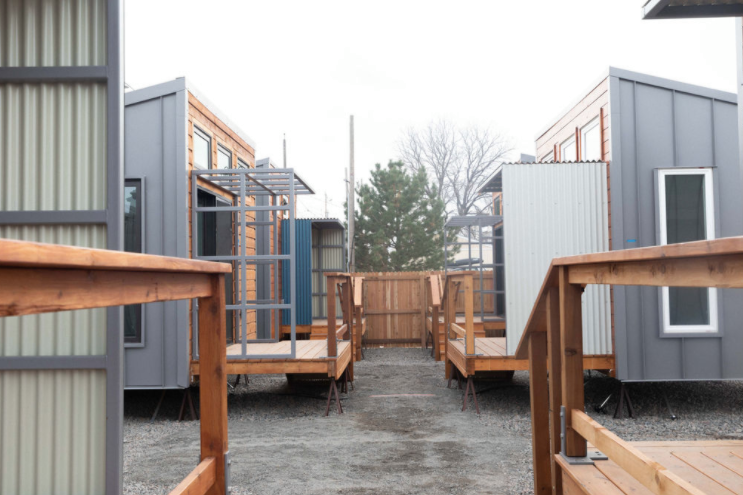
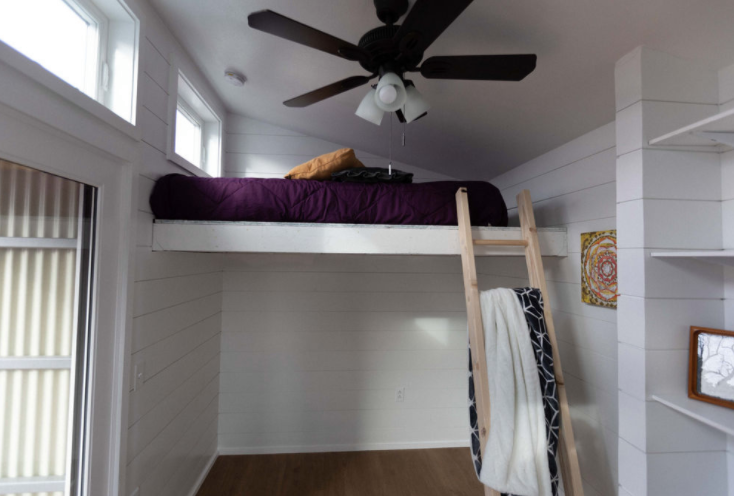
To maximize benefits to the community, ULC implements interim uses of land we’ve acquired prior to readiness for developing affordable housing or other community-focused buildings. Before the construction of Walnut Lofts, a 66 unit affordable housing complex at 38th and Blake Street, ULC partnered with CVC to lease the land to create Beloved Community (BCV), a Tiny Home Village. The village was a great success and out of the 12 residents that lived in the temporary village, ten have found permanent and stable housing. The Denver Post covered the story and found, “A year after opening, supporters are touting the results of a University of Denver study of the village as proof it [the Tiny Home Village] is improving lives, both for its residents who were chronically homeless and in the surrounding community.” Beloved Community Village demonstrated a positive impact on the local community, and a resident who moved into the Village in 2017 was even able to move into a 1 bedroom apartment at the Walnut Lofts in July 2020.
“Now, more than ever, we are seeing the lives of families and individuals impacted dramatically by the loss of stable housing,” said Mark Marshall, ULC’s Vice President of Real Estate. “From a broad perspective, we have to recognize that the un-housed are coming from many varying circumstances and we have to meet people where they are. Tiny Home Villages are one of many tools that need to be deployed to address the rising number of homeless people in our communities. With Beloved Community, not only did we witness many of the Villagers move on to permanent housing and more stable lives, but we also watched a neighborhood pivot from skepticism about the idea to fully-embracing the Tiny Homes Village once it was constructed…. so much so that when it was relocated, the neighbors were disappointed to see them leave and offered to host another Tiny Homes Village.”
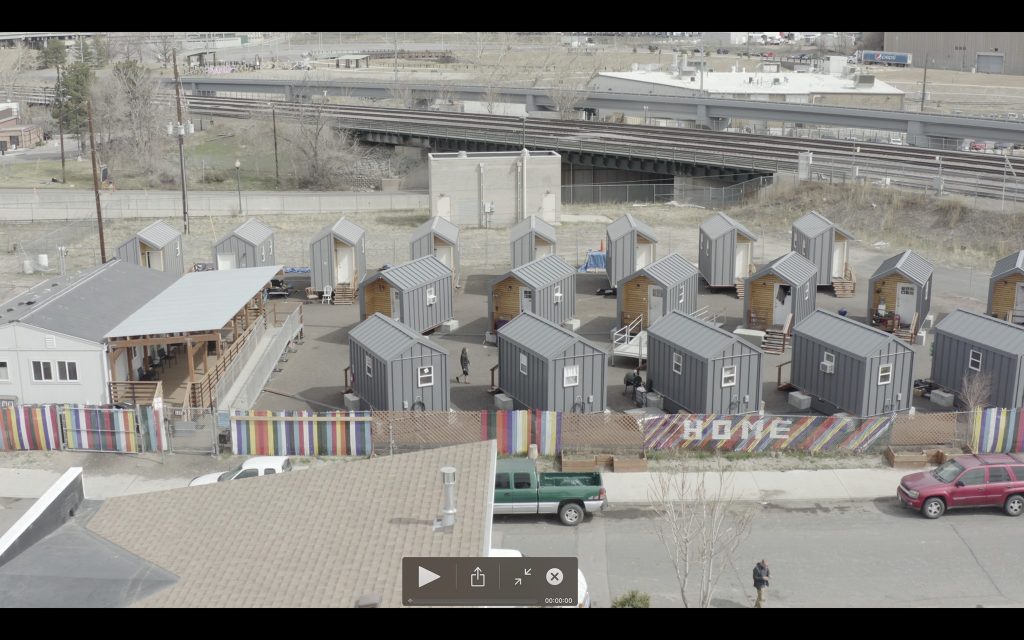
The Barton Institute for Community Action, in partnership with the University of Denver’s Graduate School of Social Work and Center for Housing and Homelessness Research (CHHR), completed a report to measure the effectiveness of Beloved Community’s mission. The evaluation addressed three primary research questions:
- What impact does moving from homelessness into BCV have on individual outcomes, including a) education, employment, and finances; b) health and public service interactions; and c) shelter?
- What are the long-term outcomes experienced by individuals who live, or have lived, at BCV?
- What impact does BCV have on the community within which it is situated, including perceptions of neighborhood residents living in close proximity to the Village as well as reported crime and police involvement in the areas surrounding the Village?
In short, the evaluation findings showed that Beloved Community Village residents reported improvements in a number of areas. To read the full report, click here.
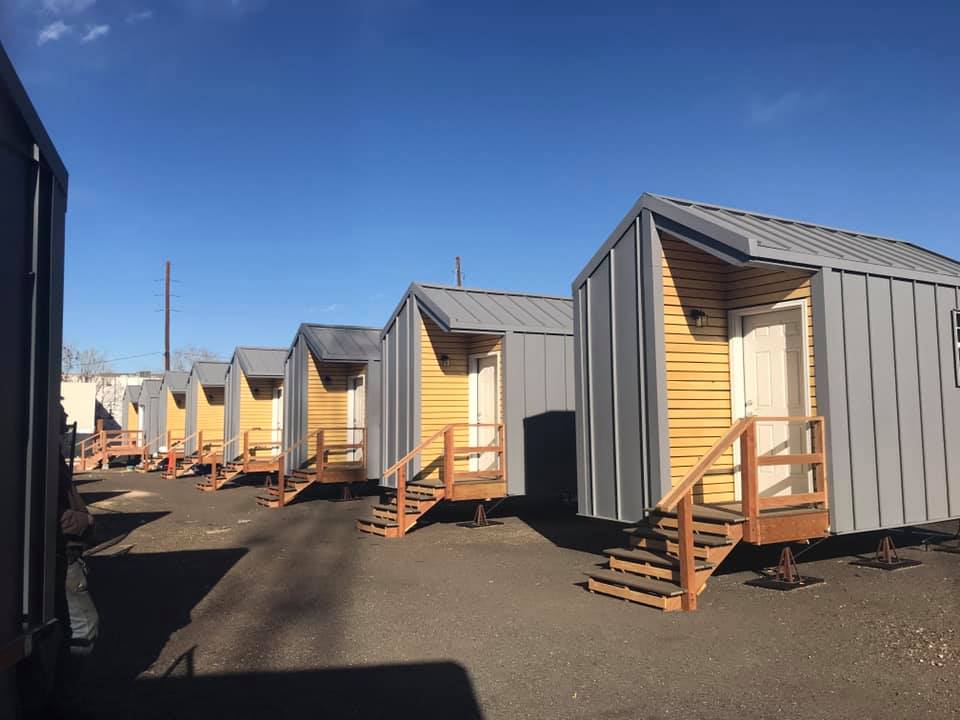
On any given night, at least 1/3 of the 5,000+ people experiencing homelessness in Denver are women or transgender, but fewer services exist to serve this portion of the population. According to Denver’s three-year shelter plan document, those most in need include women with pets, women with limited access to transportation, domestic violence survivors, transgender women, elderly women, and youth. Earlier in December, CVC opened The Women’s Village at Clara Brown Commons, which will serve as a temporary transformational housing community that features fourteen relocatable tiny homes and one shared Common House in the Cole Neighborhood. The vision is to use the portion of the site along 37th Ave that will soon be developed into commercial and community space as the final phase of construction for Clara Brown Commons.
“The night before the first two women moved into the Village, one woman slept in a stairwell, and the other slept in an abandoned warehouse,” said Cole Chandler. “Now they are sleeping in a safe, stable, bright, community-based environment where their healing journey can begin together.” The Women’s Village aims to provide these residents with the stability and privacy necessary to work toward securing long-term housing.
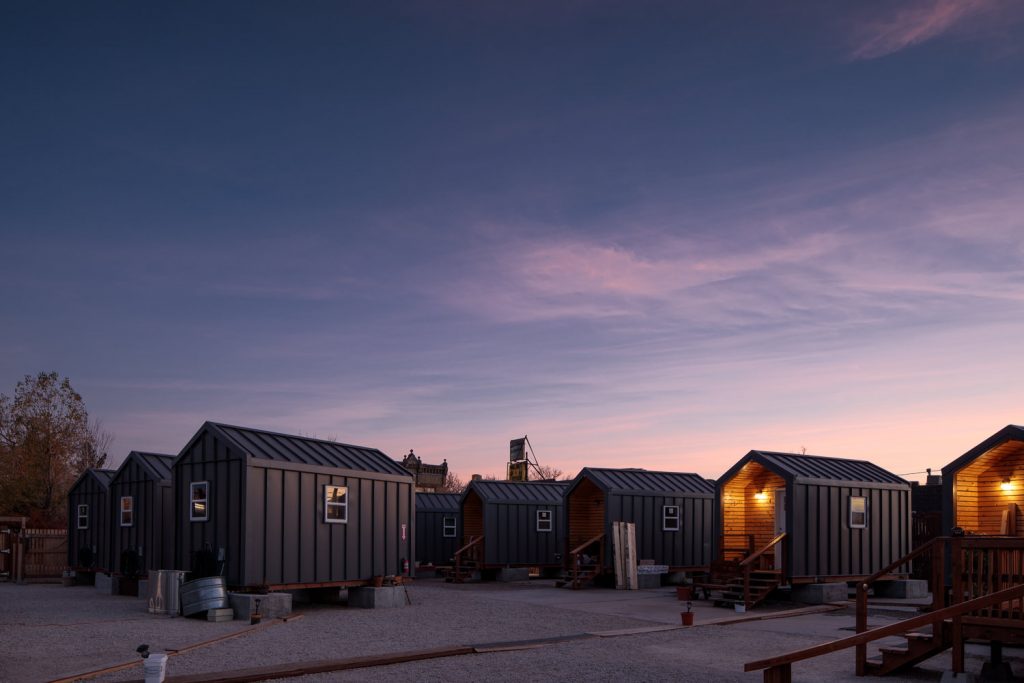
As Metro Denver continues to face a severe and unprecedented housing crisis, CVC knows that we must do all we can to aid in the solution. ULC is grateful for their exceptional leadership. To learn more about CVC, please visit their website here. Or please consider a donation to help furnish one of their tiny homes.

